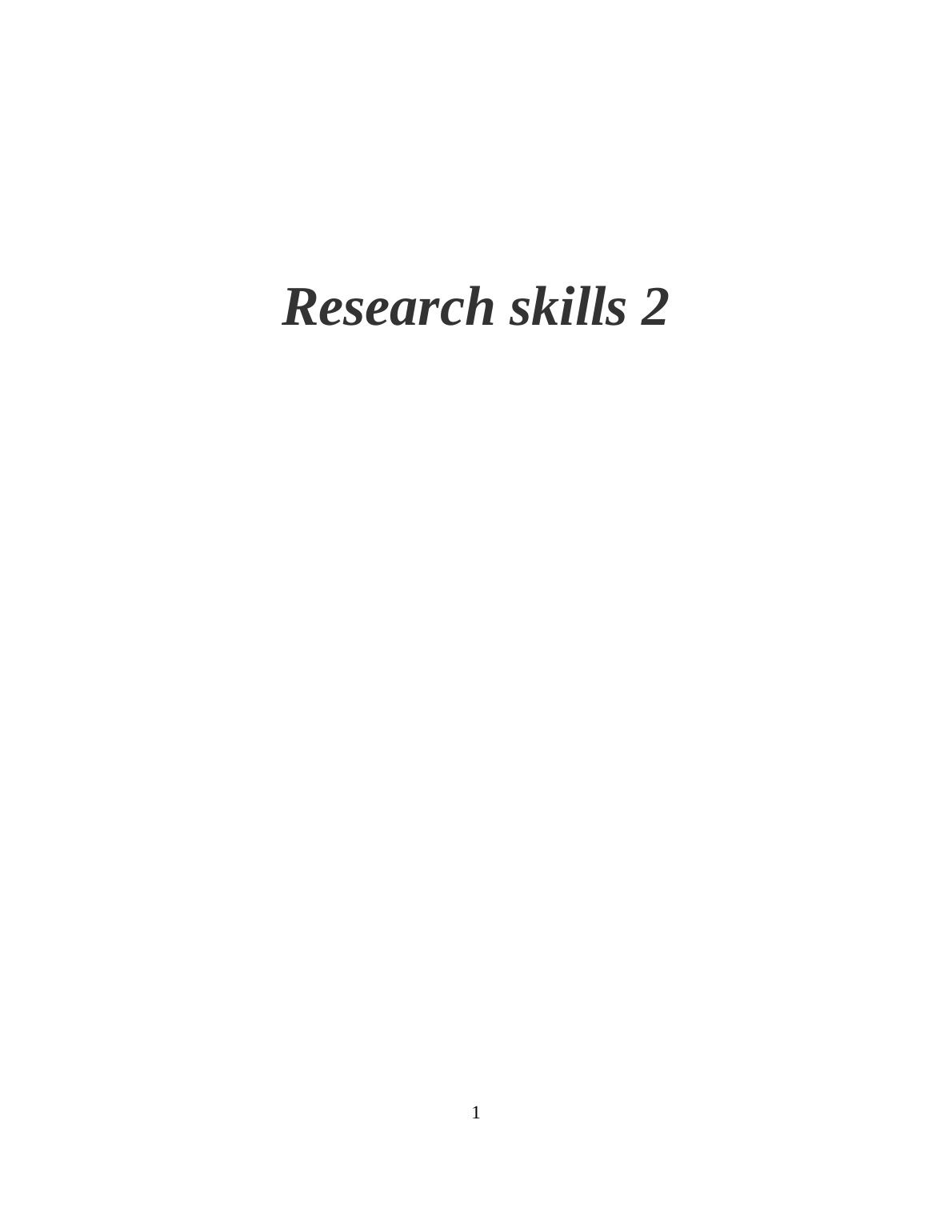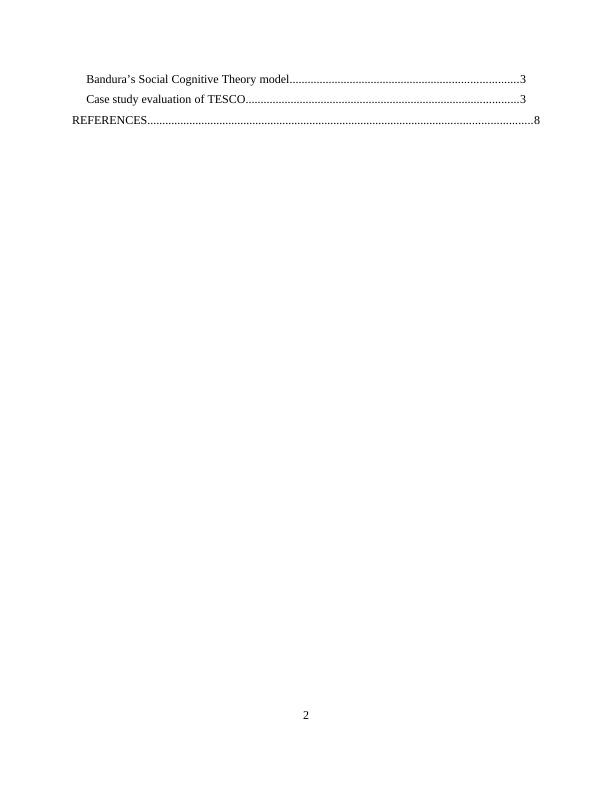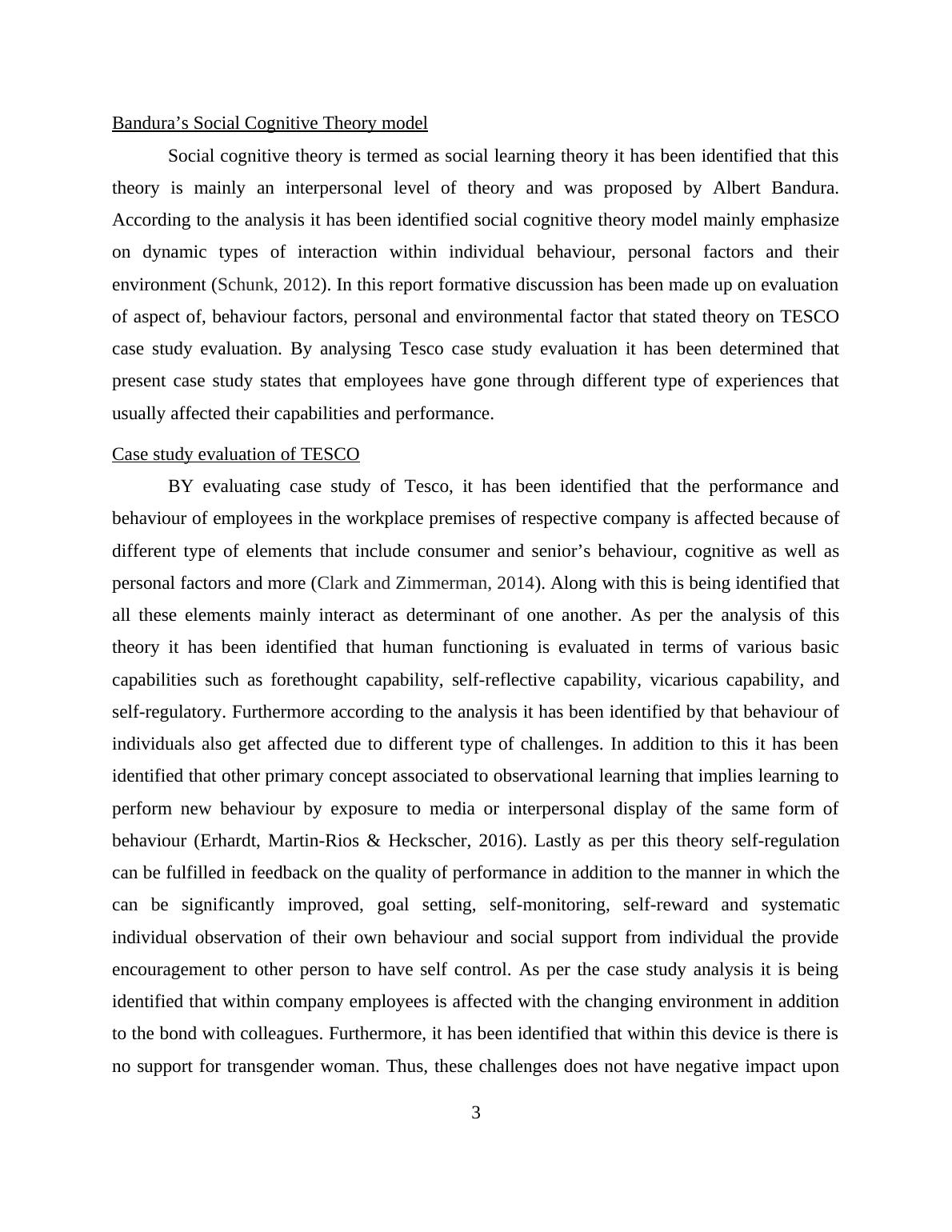Bandura’s Social Cognitive Theory Model
Added on 2022-12-30
8 Pages1969 Words34 Views
End of preview
Want to access all the pages? Upload your documents or become a member.
Bandura’s Social Cognitive Theory model
|12
|1771
|43
Social Cognitive Theory and its Application in Tesco Case Study
|8
|2096
|60
Understanding Human Behaviour through Bandura's Social Cognitive Theory
|9
|1897
|29
Factors That Impacted Behaviour
|7
|1641
|23
Factors Affecting Performance and Productivity of Tesco Company
|7
|1973
|53
Examination of Personal, Environmental, and Behavioural Factors from Bandura's Social Cognitive Theory Model: A Case Study of TESCO PLC
|7
|2103
|71



